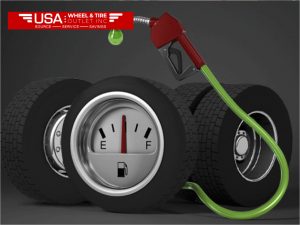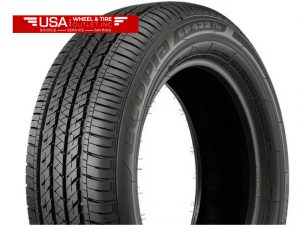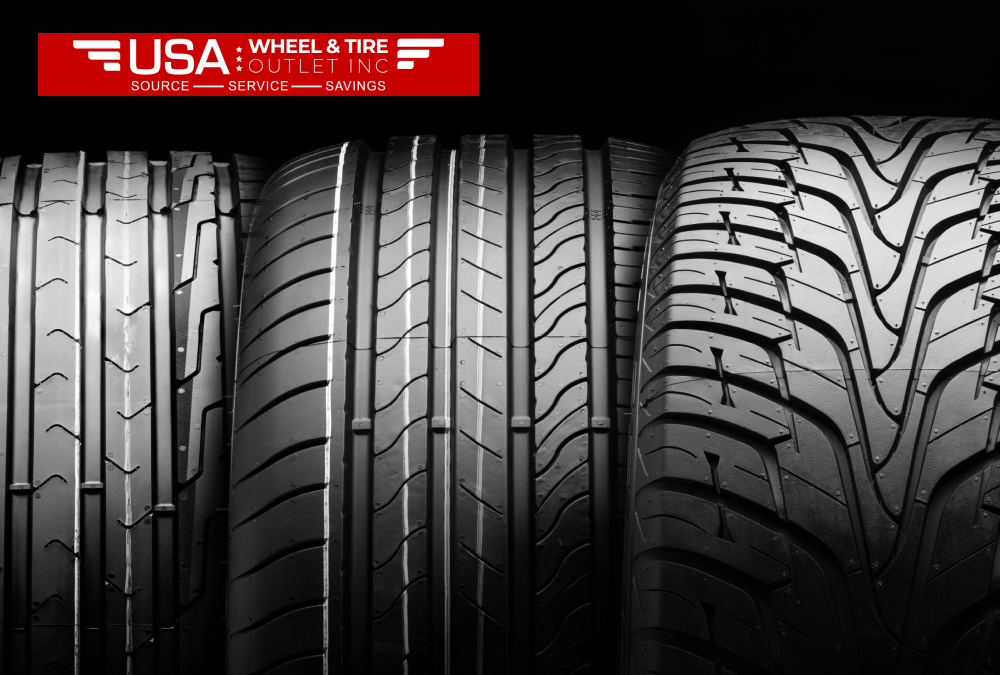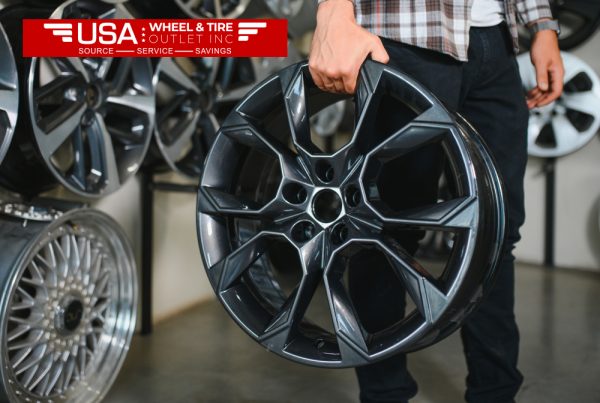Tires play a very critical role in maximizing your fuel efficiency and mileage. That is, the best tires help maximize your fuel efficiency by optimizing the rolling resistance of your cars, enhancing traction, and improving the overall performance of your car. Properly selected tires will make mileage improvement work to keep your eco-friendly car running at its best.
In this guide, we will discuss the best tires for cars good on gas in 2024, which are made to ensure fuel efficiency with excellent performance, safety, and comfort. Whether you drive a compact sedan or a hybrid, choosing the right tires can have a significant impact on your car’s overall performance and fuel consumption.
Why Tires Matter for Fuel Efficiency
Tires are not only about grip and safety. Tires can have a direct impact on the consumption level of fuel for your car. Low rolling resistance is where the fuel-efficient tires come from; there is less amount of effort for your vehicle to move. In other words, it means that the engine does not need to be worked that much hard; maybe it will improve mileage a bit.

Other than the rolling resistance, pressure, tread design, and even the type of rubber used can affect gas efficiency. Maintaining the correct pressure and choosing tires that can optimize fuel efficiency will let you get more miles to the gallon.
Top 10 Best Tires for Cars Good on Gas in 2024
1. Michelin Energy Saver A/S
Michelin Energy Saver A/S: This is a top-of-the-line option for people who want to enhance the fuel efficiency of their car. Low rolling resistance tires are meant to minimize the energy lost in the process of the tire rolling; this way, it ensures better mileage.
Key Features:
Why it’s Good for Gas
The Michelin Energy Saver A/S may contribute to the potential to gain up to 8% more efficient fueling, making it perfect for those drivers that want to increase the mileage of their environmentally friendly automobiles.
2. Bridgestone Ecopia EP422 Plus
This Bridgestone Ecopia EP422 Plus is engineered for hybrid, electric, and fuel-efficient drivers to be a technology to enhance fuel economy and better handling and comfort.
Key Features:

Why it’s good for gas:
Ecopia EP422 Plus-rolls its own low in energy consumption to your car that requires a move when on forward thus perfect in usage with the green car
3. Goodyear Assurance Fuel Max
Goodyear Assurance Fuel Max is one of the best options available for saving on fuel spending. This is a tread compound tire that reduces rolling resistance and thus increases miles per gallon.
Key Features:
Why it is Good for Gas
The Fuel Max tire reduces rolling resistance to improve gas mileage up to 2%.
Therefore, it is an ideal replacement for those seeking the efficiency enhancement of fuel without trading performance and comfort.
4. Continental TrueContact Tour
The Continental TrueContact Tour tire is perfect for balancing mileage improvement with general purpose performance. With its own special EcoPlus Technology, it optimizes the reduced rolling resistance while it makes excellent traction and comfort.
Key Features:
Why it is good for Gas:
True Contact Tour has improved the fuel efficiency due to its low rolling resistance and well-designed features without compromising high safety and performance levels.
5. Pirelli Cinturato All Season Plus
The Pirelli Cinturato P7 All-Season Plus is a tire for all seasons that puts fuel-efficient tires at the top of most people’s preference list when it comes to finding a dependable, green tire. Its unique tread pattern and new materials ensure it is perfect for vehicles running on gasoline.
Important Features:
Why it’s Good for Gas:
Cinturato P7 Cinturato P7 features massive fuel efficiency, hence the perfect tyre for comfort, quiet and a nice environment for any driver wishing to make most of the car’s fuel efficiency.
6. Hankook Kinergy PT
Hankook Kinergy PT is designed to achieve the perfect balance between performance, comfort, and efficiency. The tire is low in rolling resistance that provides efficiency in fuel, without compromising security.
Key Features:
Why it’s Good for Gas:
Kinergy PT tire Kinergy PT tire is designed to assist in the saving of fuel and at the same time offers an excellent all-round performance that makes it perfect for those individuals seeking to boost their vehicle’s gas mileage.
7. Yokohama Avid Ascend GT
Its Yokohama Avid Ascend GT tire offers great balance between fuel efficiency and performance. It has a unique tread compound that reduces the resistance to rolling, thus allowing motorists to get more mileage from every tank of gas.
Key Features:
Why it’s Good for Gas:
Avid Ascend GT Avid Ascend GT is an emphasis on tyres that may be fuel-effective to help raise overall gasoline efficiency without sacrificing performance and comfort.
8. Falken Azenis FK510
The Falken Azenis FK510 is a high-performance tire with a focus on the fuel economy. This particular type of tire is most suitable for those who use tires with high performance where they want to experience impressive gas mileage.
Key features:
Why it’s Good for Gas:
Azenis FK510 Azenis FK510 has low rolling resistance, which increases efficiency of fuel, making it the ideal choice for eco-friendly cars and high-performance vehicles.
9. Michelin Defender T+H
In According to USA Wheels & Tires Outlet INC, The Michelin Defender T+H is an all-season tire that provides a fantastic fuel efficiency along with the ability to ride in a quiet, comfortable manner. The advanced technology of the tire helps to reduce resistance to rolling. Thus, it is the best option for those who would want to increase their mileage without sacrificing the safety or comfort.
Key Features:
Why it’s Good for Gas:
This version is geared toward delivering better fuel efficiency and helping drivers achieve more gas mileage without any compromise in the comfort of their vehicles or having a better performance.
10. BFGoodrich Advantage T/A Sport
BFGoodrich’s Advantage T/A Sports is a fuel-efficient tire with incredible performance and ease of use. The reality is that the amount of rolling resistance decreases and makes mileage better as well.
Key Features
This Advantage T/A Sport also has an excellent increase in fuel efficiency through its particular tread pattern, which also decreases rolling resistance, so this is really the one with the best performance and traction.
How to Pick the Right Fuel-Efficient Tire for Your Automobile
Other factors beyond fuel-efficient tires when selecting the best one for your car include whether the tires are suitable for the type of car driven, your driving habits, or even the local climate condition. So, here are the things you should put into consideration before buying some new tires for your ride:
1. Vehicle Type
Different vehicles demand different tire specs. The fuel-efficient designs of tires would be in your interest if you’re driving a compact sedan or a hybrid; Michelin Energy Saver A/S or Bridgestone Ecopia EP422 Plus may be considered suitable for those vehicles. If you have an SUV or a pickup truck, though, even though it would still mean low rolling resistance, you might put durability and performance above rolling resistance because heavier vehicles often place more strain on them.
2. Tire Size
The size of the tire affects both fuel efficiency and overall performance. Tires with larger diameters are generally more stable but tend to increase fuel consumption slightly due to increased rolling resistance. On the other hand, smaller tires tend to have better fuel efficiency. Always check your car’s recommended tire size, which can be found in your owner’s manual or on the tire placard inside the door frame.
3. Tread Design
The tread pattern on your tires affects traction and handling, but it also affects how much fuel your car consumes. Tires with a more streamlined tread design, like the Continental TrueContact Tour, are often more fuel-efficient because they reduce the effort needed to roll. More aggressive tread patterns, typically found in tires designed for off-road use, may reduce fuel efficiency due to increased rolling resistance.
Maintaining Your Fuel-Efficient Tires for Maximum Mileage
Once you’ve selected the best tire for your car, regular maintenance is key to ensuring it continues to perform at its best and provides optimal mileage improvement. Below are some essential tips for maintaining your tires:
1. Regularly Check Tire Pressure
Maintaining the correct tire pressure is crucial for ensuring that your tires remain fuel-efficient. Under-inflated tires create more rolling resistance, leading to poorer fuel efficiency. On the other hand, over-inflated tires can wear unevenly, affecting their lifespan. Make it a habit to check your tire pressure at least once a month, and always before embarking on long trips.
2. Rotate Your Tires
Tire rotation will mean that all four tires would wear evenly. If worn unevenly, the performance of your car’s handling and fuel efficiency would definitely be affected. Regular tire rotation, which is approximately every 6,000 to 8,000 miles, maintains even-wear patterns and maximizes the life of your tires.
3. Alignment Check
Proper wheel alignment also reduces tire wear and enhances handling, which will further improve fuel efficiency. It causes uneven tire wear by misalignment, which could increase rolling resistance and diminish mileage. If your car pulls to one side, or if you experience some steering issues, get the alignment checked as soon as possible.
4. Don’t Overload
Extra weight in the vehicle causes much impact on the vehicle’s fuel consumption. An overloaded vehicle is putting a lot of stress on tires, and they are working extra hard, thereby reducing the overall efficiency. Keep your car as light as possible by removing all unnecessary items from the trunk or backseat.
How Eco-Friendly Tires Affect the Environment
As compared to the money saved while at the pump, such environment-friendly tires can still make your carbon footprint decline. Many fuel-efficient tyres use materials and manufacturing which result in a lower carbon impact. Michelin, as well as Bridgestone, use ecofriendly compounds that reduce harmful emission through production and the entirety of its life cycle.
Materials Used in Eco Friendly Tires
Environment-friendly tire producers are increasingly relying on natural and renewably sourced input materials such as silica, soybean oil, and recycled rubber. The above materials offer a large saving in carbon footprint for the tires while also introducing long-term durability and performance that lasts. Thus, when consumers go green, companies that produce tires are going green too.
Better Fuel Economy Translates to Lesser Emission
By selecting fuel-efficient tires, you’re not just saving money on fuel—you’re also contributing to reducing your car’s emissions. Tires with low rolling resistance reduce fuel consumption, which lowers CO2 emissions. This makes eco-friendly tires an excellent choice for drivers who are focused on sustainability.
Conclusion: Choosing the Best Tires for Cars Good on Gas
The right tires are very important to ensure that you maximize the fuel efficiency of your vehicle. Whether you drive a hybrid, electric, or even a fuel-efficient sedan, tires with low rolling resistance can improve your mileage improvement and reduce fuel consumption. Tires like Michelin Energy Saver A/S and Bridgestone Ecopia EP422 Plus make excellent choices for eco-friendly cars and vehicles looking to boost gas mileage.
It will give your car better performance and save money at the same time by being more environmentally friendly. Do not forget to consider rolling resistance, tread pattern, and general toughness for that perfect tire that suits your needs. Now, go ahead and have safe and money-saving mileage in your ride!
Read Also: What Is the finest Tire Size for a 2019 Ford F-150 EcoBoost XLT?
FAQs
1. What are fuel-efficient tires?
Fuel-efficient tires are designed to reduce rolling resistance. This means your car consumes less energy to move around. It therefore improves your fuel economy and gives better gas mileage. These types of tires are usually made with special tread compounds and design features that optimize fuel efficiency without compromising safety or performance.
2. How do tires affect gas mileage?
Tires can influence gas mileage through rolling resistance. Those tires that have low rolling resistance take less effort to rotate, which means that the engine has to do less work and, thus, burn less fuel. Proper tire pressure and choice of tires for low rolling resistance will also help boost gas mileage.
3. What are the best eco-friendly car tires?
The best tyres for eco-friendly cars that maximize fuel efficiency are to be chosen. Some of the popular ones include Michelin Energy Saver A/S, Bridgestone Ecopia EP422 Plus, and Continental TrueContact Tour. Because these tyres are optimized with reduced rolling resistance, a fuel-efficient vehicle will save more fuel.
4. Can I use regular tyres for a fuel-efficient vehicle?
Although you can use regular tires on fuel-efficient vehicles, low rolling resistance tires will help your car achieve better gas mileage. Regular tires will not offer the same level of fuel saving, and using them will decrease your car’s overall efficiency.
5. How often should I replace fuel-efficient tires?
Fuel-efficient tires should be replaced when worn out; normally, after 6 years or if the tread is less than 2/32 inches. However, the tread and tire performance must be regularly checked. Maintenance of your tires properly by rotating and checking their pressure can ensure that the life of the tires lasts for a long time.
6. Do fuel-efficient tires wear out faster?
Fuel-efficient tires will probably wear out faster if the owner does not properly take care of them than conventional tires. On the other hand, many of these fuel-efficient tires are built to last. Correct inflation, alignment, and rotation of these tires would maximize their life expectancy.
7. How much can gas-saving tires save fuel?
Fuel-saving tires can lead to an increase of as much as 28 percent in the gas mileage according to the type of tire and the driving conditions. Though the savings seem so minute, over time it amounts to a considerable sum of money, especially in people who drive for lots of miles in their vehicle.
8. Are all-weather fuel-efficient tires?
Most fuel efficient tires are in the performance of the Continental TrueContact Tour or Michelin Energy Saver A/S; most tires can handle everything. However, if one hails from a state where heavy snow and icing occurs during each winter month, it will be inevitable to invest in seasonal Winter tires that would help increase the car’s performance and drive through these conditions smoothly.





